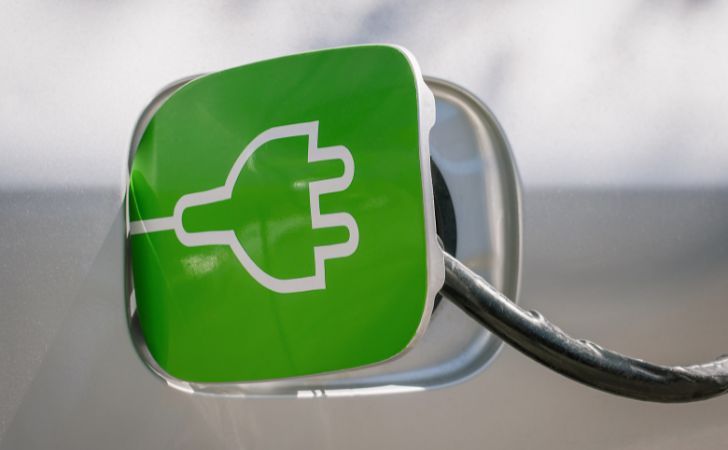The automotive industry is evolving at a rapid pace, driven by technological innovations and growing environmental concerns. As 2025 is already here, several major trends are emerging and continuing to develop, transforming the way we design, use, and protect our vehicles. Let’s take a look at the main automotive trends to watch in 2025!
Electrification at the Heart of Automotive Trends 2025 #
Vehicle electrification is undoubtedly one of the most significant transformations in the automotive industry. In recent years, electric models have flooded the market, with registrations constantly increasing.
Faced with increasing restrictions on CO2 emissions and carbon neutrality goals set by many countries, manufacturers are accelerating their transition to electric models. We can therefore expect:
- More affordable and accessible models: New ranges of electric vehicles (EVs) are expected, targeting economic and family segments. Renault has already expanded its electric range with the return of the iconic Renault 5 in electric version, a compact and affordable model.
- Improved range: Thanks to advances in battery technology, some models will offer a range of over 435 miles. Tesla is already working on batteries that exceed this limit, while Mercedes has presented a prototype capable of reaching 621 miles.
- Charging infrastructure: Fast-charging stations are multiplying, significantly reducing the time needed to recharge a vehicle. France aims to install 400,000 electric charging stations by 2030, and the acceleration should start this year!

The Rise of Autonomous Vehicles #
Autonomous driving continues to progress. In 2025, assisted and semi-autonomous driving systems will be increasingly present on the roads with:
- Advanced levels of autonomy: Many vehicles will reach level 3 or 4 autonomy, allowing driving without human intervention under certain conditions. Waymo and Tesla are leading in this field with their respective technologies.
- Increased safety: Thanks to obstacle detection systems and smart sensors, accidents could be significantly reduced. Volvo, for example, has integrated lidar sensors to improve safety.
- Interaction with infrastructure: Vehicles will communicate with their environment to anticipate dangers and optimize routes. Pilot projects, like Smart Road in Turin, are already experimenting with this type of technology.
Connectivity and Smart Cars #
Connectivity is another strong trend transforming vehicles into true data centers.
- Advanced infotainment systems: Touch screens, voice assistants, and embedded applications are becoming widespread.
- Remote updates: Embedded software can be updated like a smartphone, ensuring optimal performance and recent features. Tesla is already a pioneer in this field with its OTA (Over The Air) updates.
- 5G integration: Ultra-fast connectivity improves navigation, route management, and synchronization with other devices. Audi is working on vehicles integrating 5G for optimal connected experiences.
Hydrogen as a Future Solution #
While electric dominates discussions, hydrogen is emerging as an interesting alternative, especially for heavy vehicles. And its arguments are compelling!
- Fast refueling: Unlike electric batteries, hydrogen fuel cells recharge in minutes. The Toyota Mirai perfectly illustrates this technology with its range of 404 miles and recharge time of less than 5 minutes.
- Long range: Hydrogen is particularly suitable for long-distance travel and utility vehicles. Hyundai has already launched the XCIENT Fuel Cell truck running on hydrogen.
- Developing infrastructure: More and more adapted service stations are emerging. In Europe, the goal is to reach 1000 stations by 2030.
Eco-friendly and Sustainable Materials #
Sustainability is becoming a key criterion in automotive manufacturing.
- Recycling and bio-sourced materials: Manufacturers favor recycled or biodegradable materials to reduce the carbon footprint. Volvo Cars uses recycled plastics in its new models.
- Eco-friendly interiors: Plant fibers, synthetic leather, and recycled plastics are becoming standards. For example, Tesla offers vegan leather seats on all its models.
- Green production: Factories are adopting more environmentally friendly manufacturing processes. BMW is investing heavily in facilities powered by renewable energy.
Vehicle Protection: The Rise of GPS Trackers #
With the increase in vehicle thefts, security has become a major concern. GPS trackers are becoming an essential solution to protect your vehicle.
-
Location tracking: Trackers allow you to locate a vehicle in case of theft. In this field, Invoxia is the number one security guarantee in Europe.
-
Alerts and notifications: Users receive alerts in case of theft attempts or leaving a defined area. These features are particularly useful for owners of high-end or collectible cars, which often have a very high financial or sentimental value.
-
Smart features: Some models include sensors detecting suspicious movements. Devices like those from Invoxia combine these sensors with mobile apps for remote control.
-
Compatibility with new technologies: Connected to mobile apps, these devices offer total remote control. And security is guaranteed even when you travel!

New Modes of Automotive Consumption #
In 2025, car ownership will no longer be the norm for everyone.
- Car subscriptions: Consumers will increasingly opt for long-term rental (leasing) or subscription services, allowing them to change vehicles according to their needs.
- Car sharing: Carpooling and peer-to-peer rental platforms will gain popularity. Getaround and Blablacar continue to expand their offerings.
- On-demand vehicles: Fleets of autonomous vehicles will be accessible by simple reservation via apps. Waymo is currently testing these systems in several American cities.
The 2025 automotive trend will be marked by a profound and lasting transformation. Between electrification, autonomous driving, advanced connectivity, and protection solutions like GPS trackers, the automotive sector is reinventing itself to meet modern expectations. For consumers, these developments pave the way for safer, more environmentally friendly vehicles better suited to their lifestyle.

